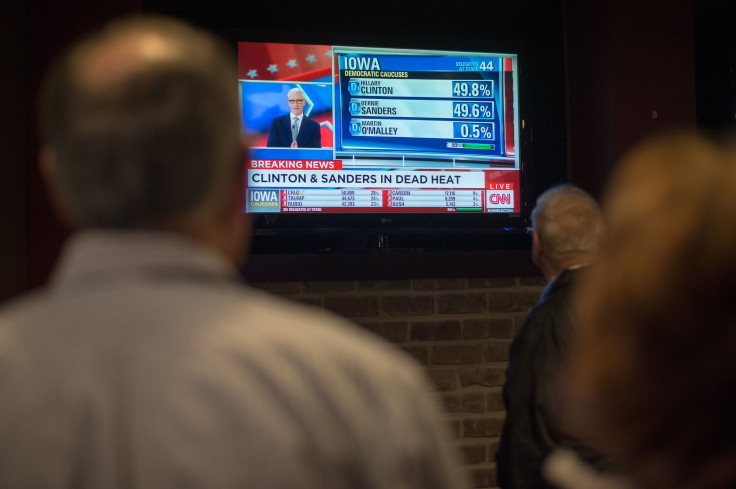Microsoft's 2016 Iowa Caucus Site Suffers Outages During Crucial Sanders-Clinton Race

Microsoft's big push to revolutionize election technology encountered a number of glitches Monday, as the company's vote-reporting website failed midway through the crucial Iowa caucuses. The failure was particularly embarrassing as the Democratic race between Bernie Sanders and Hillary Clinton was too close to call, making accurate election data all the more important.
Add “Iowa Caucus vote tracking” to Microsoft’s long list of unsuccessful promotional efforts… pic.twitter.com/RqZmx7Q11x
— Michael DeGusta (@degusta) February 2, 2016
The system was meant to streamline the vote count and minimize the errors the old telephone system would sometimes cause. Caucus chairs would use an app to report results to their state parties, with the results stored in Microsoft's Azure cloud service. The system would flag reported results that seemed incorrect, like delegate counts that seemed too high.
The results were then posted on a Microsoft-run website. The system also provided an application programming interface (API) for news organizations to tap directly into the reported data. That meant there was no middleman: The media could take the data directly from the system the parties were using to report results. Results were only made public once approved by the parties, however, avoiding any mistakes or public confusion.
Problems emerged after the caucus doors closed at 7 p.m. local time (8 p.m. EDT). "Most predictable sentence in history: The #Microsoft page for Iowa returns keeps crashing," said Breitbart News editor Mike Flynn on Twitter. "The Iowa Democratic Party caucuses website went down. Thanks Microsoft," said The Intercept reporter Zaid Jilani.
Come on @Microsoft.... #IowaCaucus #devops pic.twitter.com/b1DzQlBCuo
— Matt Oczkowski (@MattOczkowski) February 2, 2016
The company told USA Today that while the apps for reporting results worked fine for both parties, the two websites that displayed the results were overwhelmed by national interest in the vote. Microsoft worked to resolve the issue as quickly as possible.
Both Clinton and Sanders had prepared for the possibility that Microsoft's app would stop teams from reporting data. The two teams had built backup systems based on traditional phone systems, while Sanders' team expressed skepticism about why Microsoft was offering a free service in the first place.
On the Democratic side, the accuracy of data was paramount, as Clinton and Sanders took a near-even split of votes, with media outlets declaring the race "too close to call." On the Republican side, Texas Sen. Ted Cruz beat out rival Donald Trump by more than three percentage points.
© Copyright IBTimes 2025. All rights reserved.





















